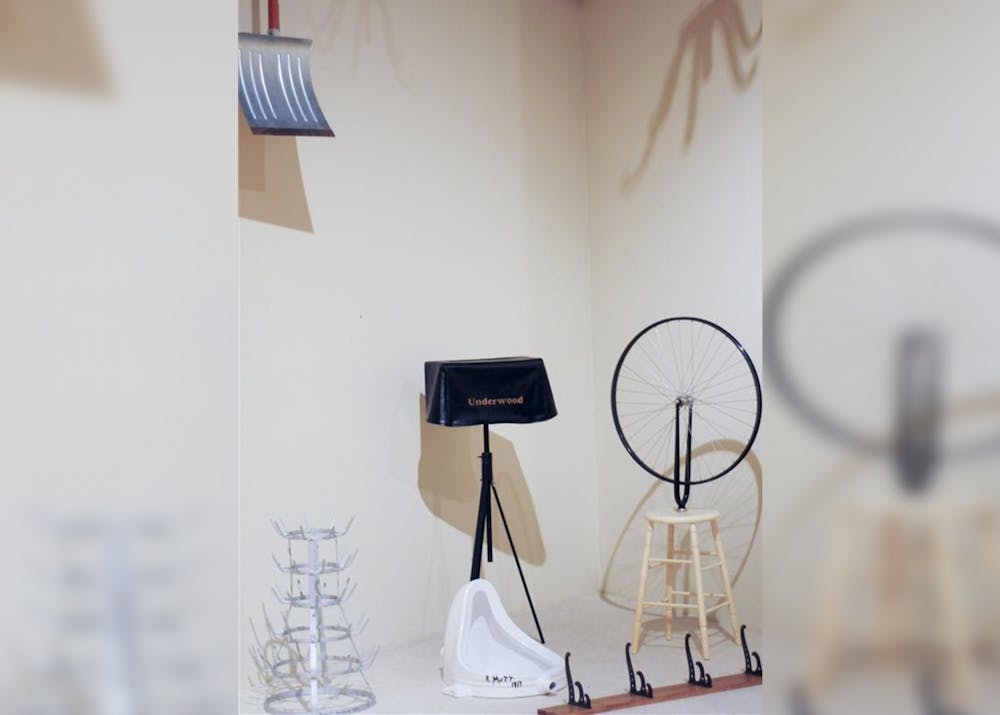Gen Z humor is weird, and that’s putting it lightly.
Scrolling through TikTok is starting to feel like a fever dream. Twitter is basically incomprehensible to outsiders. The days of posting basic memes to Facebook are long over.
Our humor is one big inside joke that’s entirely unexplainable to anybody else — nobody knows where or how it originated, just that it did and now it’s really funny.
It’s not impossible to contextualize it though, and I think doing so is an interesting thought experiment. Recently, I watched a video essay from jREG titled “Post-Irony, Meta-Irony, and Post-Truth Satire,” in which he argued there are multiple layers to verbal irony.
At the bottom is sincerity, the act of telling the truth and being straightforward so any other interpretation of the statement becomes nearly impossible.
[Related: OPINION: Embracing life's absurdity]
Next, we have sarcasm, the act of exaggerating the opposite of the sincere statement to make some sort of point; at this stage, the truth is still mostly discernible, because basic sarcasm is usually easy to detect.
And, finally, we have “post-irony,” as well as “meta-irony,” which really could be split into two categories — “post-irony” is the act of returning to sincerity, but in an exaggerated way that makes sincerity seem ironic. On the other hand, “meta-irony” is the act of muddling sincerity with irony to the point where the truth is almost entirely indiscernible, sometimes even to the ones perpetuating it.
Let’s look at emojis as a tangible example: though emojis have been popular for 10 years now, even among other generations, Gen Z has used them in progressively weirder, more ironic ways. But, the more I use them in “ironic” ways, the easier it is to begin questioning whether that irony has become sincere.
This video was published Jan. 20, 2020 — so, about two months before the COVID-19 pandemic reared its effects on the broader population. I note that because, as I’ve discussed in a previous column, the pandemic exacerbated our internet use. And that’s important because most of Gen Z’s humor is centered around the internet.
Let’s take “Loss,” for example. The comic strip, which came from a web series titled “Ctrl+Alt+Del” in 2008, has since become recognizable even as a series of lines that more resemble some sort of cult symbol than a meme. But that doesn’t matter — if you don’t get it, you don’t get it. It’s an inside joke that’s been running for just about 15 years now.
It’s valuable to also note humor’s use as a coping mechanism for stressful situations, which I would argue includes the societal woes we’re experiencing today. And, yes, some of this humor can overtly veer into the darkness: if you’ll recall back to January 2020, when former President Donald Trump ordered a drone strike that killed Qasem Soleimani, an Iranian general, you’d remember the influx of World War III memes that followed.
This is a perfect example of what I’m talking about: though nobody really believed we’d be drafted into the next World War, the idea we could engage in yet another war in the Middle East was a very real possibility. For a generation whose oldest members were only 4 years old when 9/11 happened, and thus has only known a world with the War on Terror, further escalation is a legitimately concerning thought.
In a way, Gen Z humor is a lot like Dadaism, the early 20th-century art movement, in that it has patently rejected societal norms and what it traditionally means to be funny. Dadaists like Marcel Duchamp were directly reacting to the atrocities of World War I and the rise of capitalist cultures in the beginning of the 20th century with absurd, avant-garde works that challenged the status quo.
[Related: OPINION: A generation of trauma]
It’s easy to interpret this sort of radical art — or, in the case of Gen Z, this sort of surreal, meta-ironic humor — as a sign of apathy. But, that’s an incorrect assumption: Gen Z is an activism-oriented generation that is, almost surprisingly, optimistic about the future of political progress. Despite the dark undertones of the memes we share and the language we use, the point is that this brings attention to issues we truly, deeply care about.
There’s certainly concerns to be had as to the extent of irony and the ability of those not in the know to take certain things as sincere. In a fairly benign example, Dave Davies of the 1960s rock band The Kinks fell for a tweet ironically mocking the band’s name. Nevertheless, it begs the question: does it even matter?
The target audience of Gen Z’s humor is themselves. Baby Boomers like Davies don’t factor into the equation. Absurdity and increasing layers of irony are our way of coping with and living with our current reality — at this point, if you aren’t part of the joke, you were never meant to be.
Joey Sills (he/him) is a sophomore studying journalism and political science.






